Inside rural Australia’s Bachelor and Spinster Ball where singles go to find love
‘It’s hard when there is only three single people in your town and two of them are related.’ Damien Cave explores the debaucherous ball that has been matching single people since the 1800s
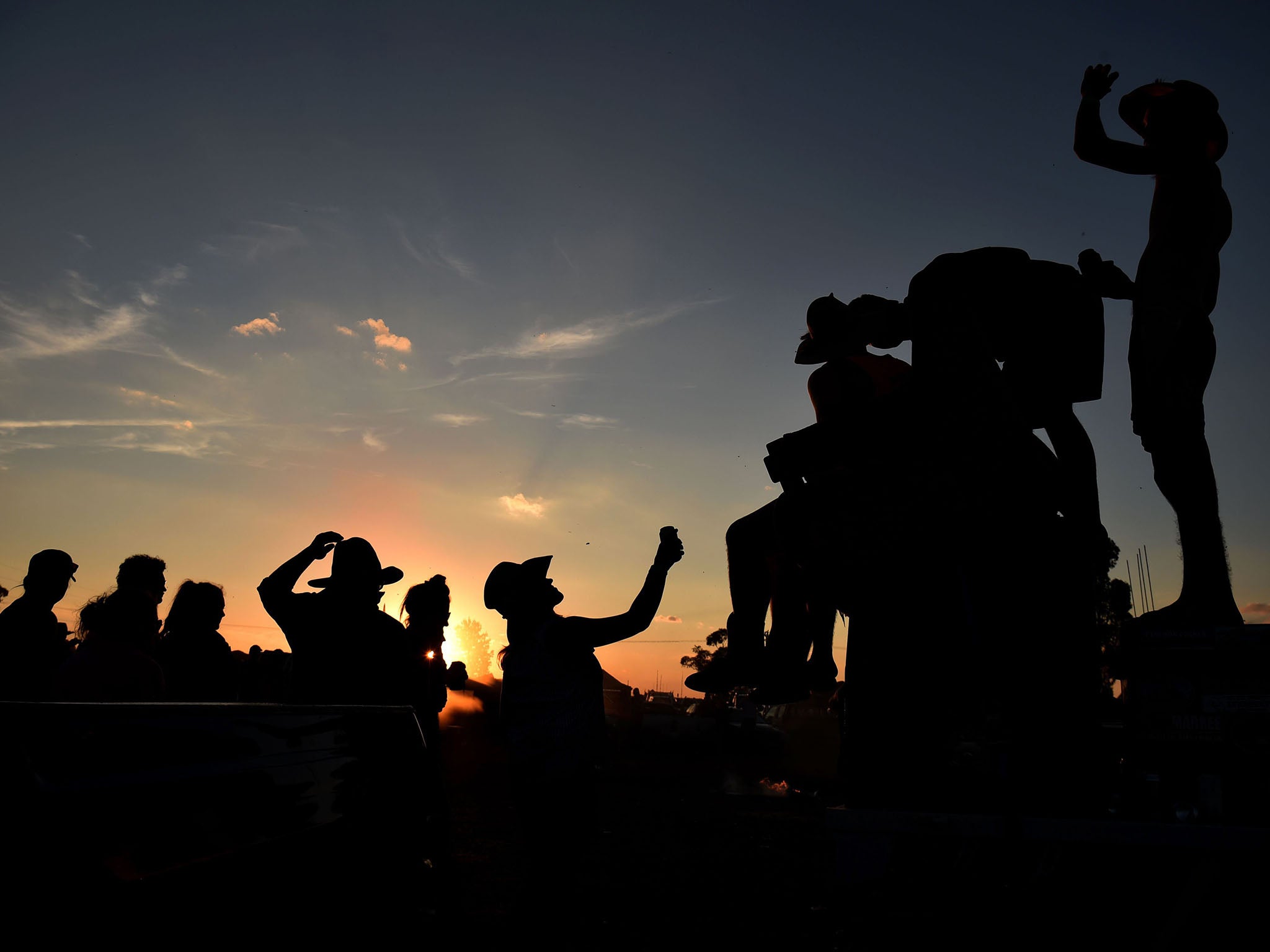
Your support helps us to tell the story
From reproductive rights to climate change to Big Tech, The Independent is on the ground when the story is developing. Whether it's investigating the financials of Elon Musk's pro-Trump PAC or producing our latest documentary, 'The A Word', which shines a light on the American women fighting for reproductive rights, we know how important it is to parse out the facts from the messaging.
At such a critical moment in US history, we need reporters on the ground. Your donation allows us to keep sending journalists to speak to both sides of the story.
The Independent is trusted by Americans across the entire political spectrum. And unlike many other quality news outlets, we choose not to lock Americans out of our reporting and analysis with paywalls. We believe quality journalism should be available to everyone, paid for by those who can afford it.
Your support makes all the difference.They call it a wet T-shirt contest but there are no winners or losers. Not many shirts, either.
One man wears nothing but a tool belt, which no one seems to mind even as the wettest and drunkest of the young and rural Australians – both women and men – tackle each other in the thick red mud, before arising for hugs.
Two hours later, they appear transformed: black ties for the men, dresses for the women. The Ariah Park Bachelor and Spinster Ball has officially begun. After all, 1,500 people don’t drive forever to this tiny town (population 493) just for giggles. They are searching for love.
“Yes, we’re here to meet people,” says Emme Williams, 22, a veterinary student who arrives at the fairgrounds in denim shorts with a few girlfriends before later attending the ball wearing white. “I prefer the ones that don’t yell at you, the ones who want to have a conversation.”
In cities, courtship has become efficient to excess. Tinder and other apps can bring intimacy faster than food delivery but for people trying to meet and mate across Australia’s vast distances, it takes more planning and patience.
Bachelor and spinster balls – or B&S balls, a fixture in the country since the 1880s, with about 30 each year – aim to help. And they are increasingly the catalyst for a matchmaking hybrid that combines the digital with the raw, communal and real.
The interaction starts online, with friends posting photos and descriptions of their friends in a singles’ Facebook group before each ball; Williams is featured scantily clad except for the wool of a freshly shorn sheep. The lucky ones move on to flirting via Snapchat.
But then real-life socialising takes over. All weekend in Ariah Park – which is about a five-hour drive west of Sydney – phones largely remain out of sight, so eager is everyone for eye-to-eye contact.
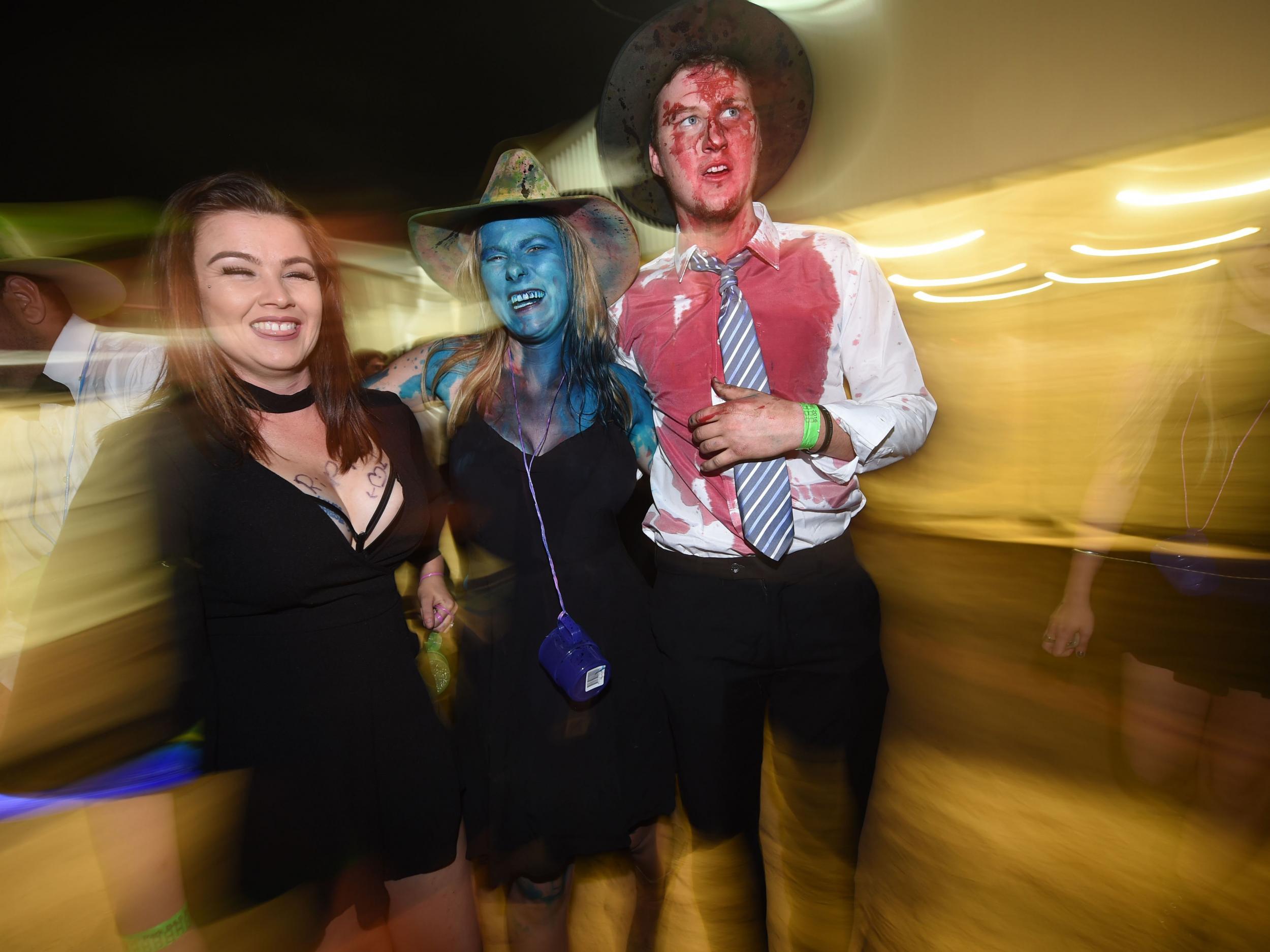
“You’re limited to three single boys in your town, and you’re related to two of them,” says Ebony Worland, 25, one of the ball’s organisers. “These were built for single women and men to find love in the country, really.”
Her own sister, Shelby Worland, 18, found a boyfriend at last year’s ball. Selling tickets this year – about $100 for food, booze and live music, plus a goody bag that includes a condom – she explains that her path to coupledom began when someone named Lleyton Neven (a friend of friends) started messaging her on Snapchat.
He lived about an hour away and after he arrived in Ariah Park on Friday, when most ball-goers show up, he found an excuse to seek her out.
“I didn’t know how to actually meet, so I said my phone was dead and I asked if she could charge it,” Neven adds. “And now here we are!” Wobbly with beer and affection, he kisses his beloved on the cheek and exclaims, “One year together!”
Not all stories from the balls end so happily.
Just ask Rippy, aka Shane Anthony Williams (no relation to Emme). He’s the unofficial photographer of the B&S scene, a railroad worker with a shaved head and grey goatee who has been snapping pictures for no charge since 2009.
On his Akubra hat (made famous outside Australia by Crocodile Dundee), he carries cattle tags imprinted with the names and dates of B&S balls, along with others marking specific memories. One commemorates a ball regular named Ezra who died at 19 in a car accident; another recalls a woman he knew from the balls who jumped to her death from a cliff with her 2-year-old child.
“It’s hard finding love,” Rippy says, noting that his wife of 30 years was somewhere nearby. “I’d hate to be single again. It’s scary, dead set.”
But that’s why the balls matter, he adds. Along with the awkward singles, the free-flowing beer and the backfiring pickup trucks known as “utes” – turned on and off to create fiery explosions called key bangs – there are people who connect at balls and come back to socialise.
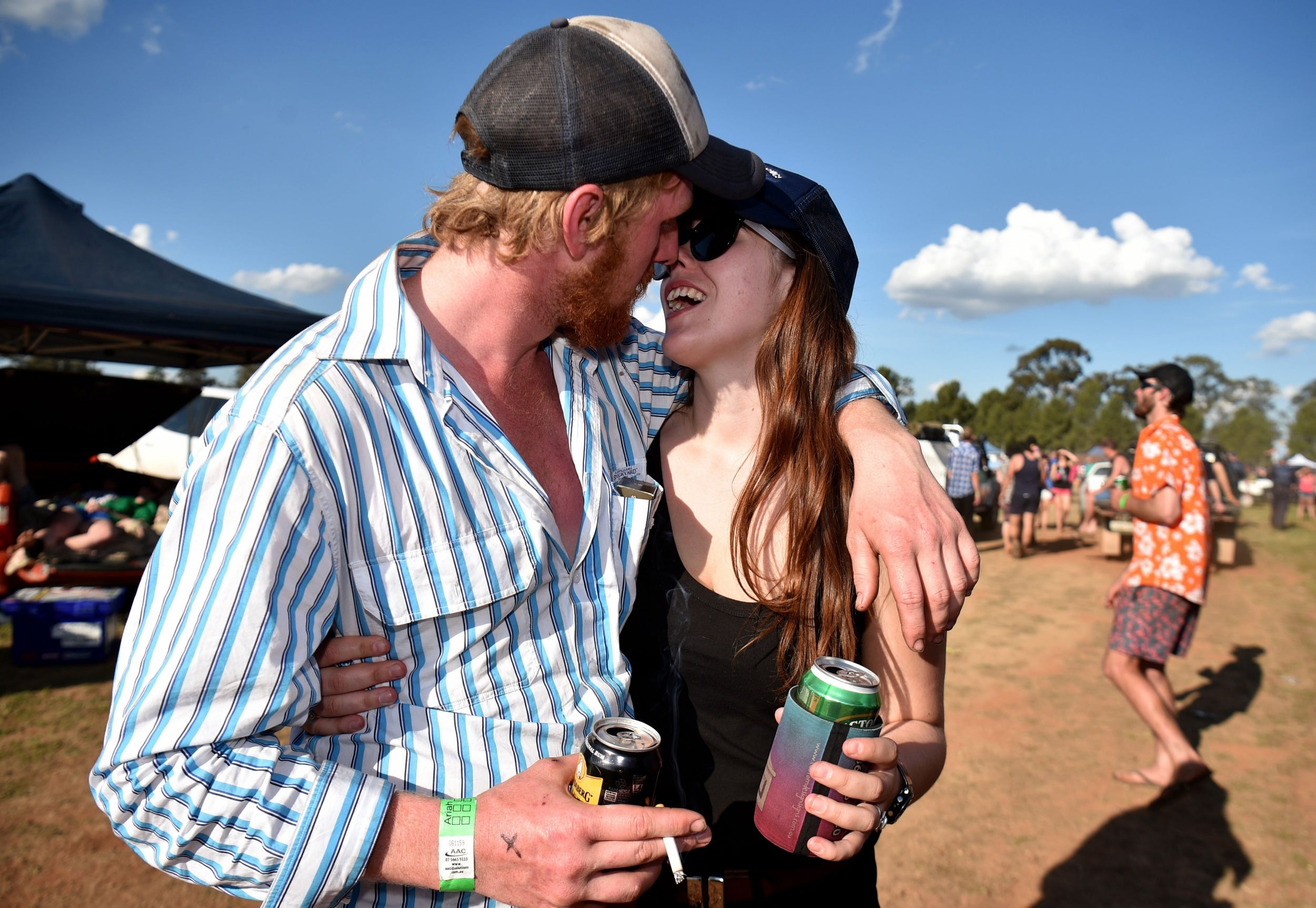
“Who here is a couple?” Rippy yells, meandering through the crowd.
Within a minute, Jess and Matt Chown emerge. He works on sheep farms; she works at an aged-care home for veterans.
“We met at a ball in 2011,” Jess says. “I laid eyes on him and it was love at first sight.”
“You know why I come? To do things I can’t do in church,” Matt says. Standing at least 6ft 3in and wider than a tree cut for timber, he kicks a trash bin, making a loud clang.
Everyone laughs, including his wife.
Jess, 30, notes that they were all part of a group, the Rummed-up Rednecks, which convenes on Facebook and at balls. “It’s a way for us to let out our frustrations,” she says.
Nearby, Williams, the veterinary student, scans the crowd for a bachelor. After a man offering her flowers moves on, one of her friends, Stephanie Papulia, 22, points to a guy in an expensive new ute.
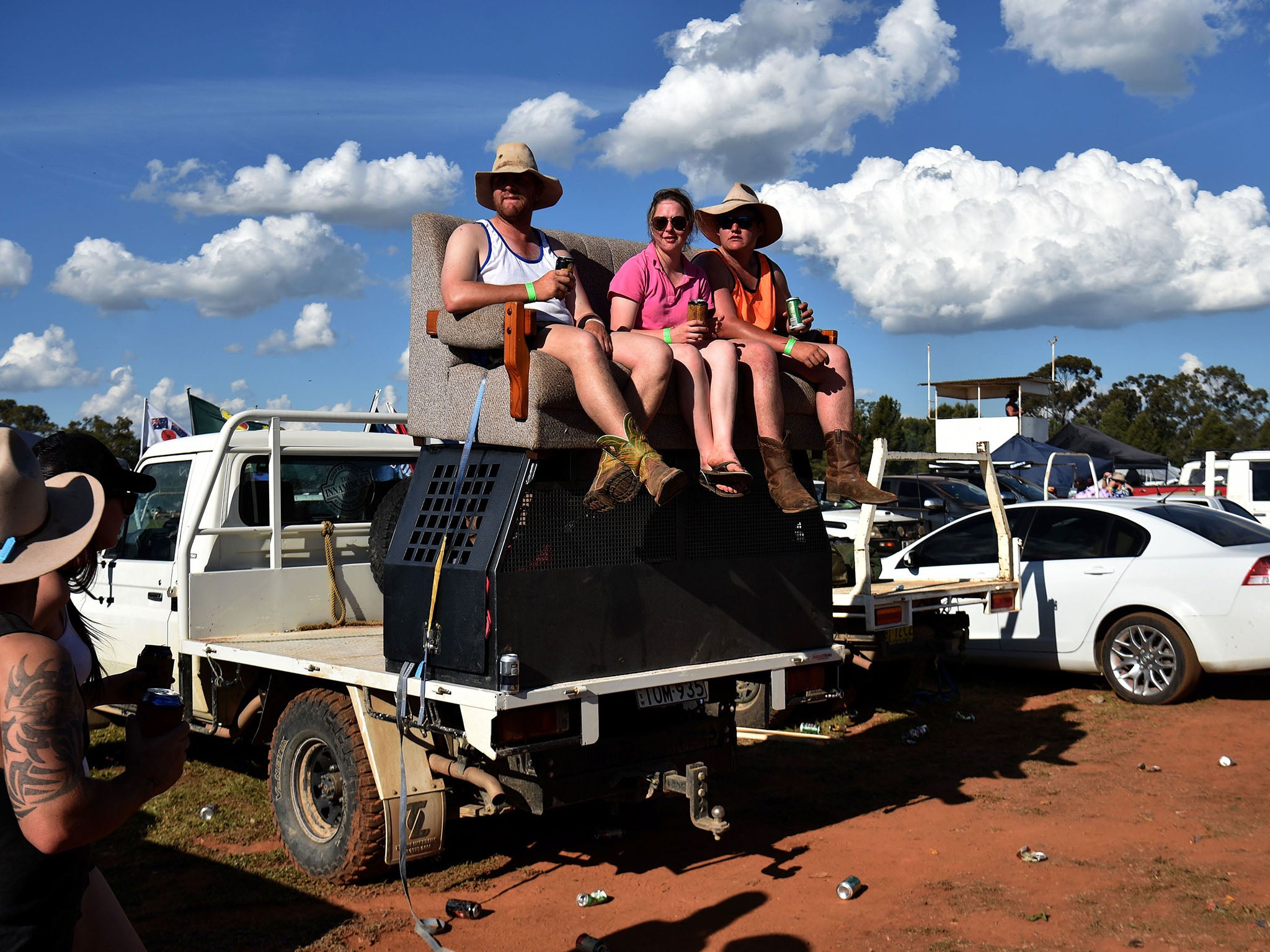
“He’s got a Land Cruiser and a mullet,” Papulia says. “Ticks both boxes.”
Williams points to another ute with large antennas. “The bigger the aerial,” she says, “the more he’s overcompensating.”
Most of the men in Ariah Park, they say, are more “chivalrous” than their behaviour might suggest. But some of the balls in other towns have been dangerous.
In 2017, two men were convicted of raping a woman at a ball in another state. Another man was sentenced to 18 months in prison last year for sexually assaulting two women at the Eel Skinners and Duck Pluckers B&S.
In Ariah Park, security staff members stalk the fairgrounds continuously.
At the ball, held under the stars after dark, the main problem seems to be food dye. No one can explain why but, for years, attendees have felt compelled to spit dye onto each other.
The rules against bringing it in go generally ignored and, every few minutes, someone is hauled off after being caught with dye.
Glitter, though, is allowed. It floats in the breeze, destined to stay in mullets forever.
And as was the case all day, the ball itself captures the silly, lonely and romantic.
The first band to perform – Whiskey Business – set the tone, playing upbeat country songs about love and traditional living.
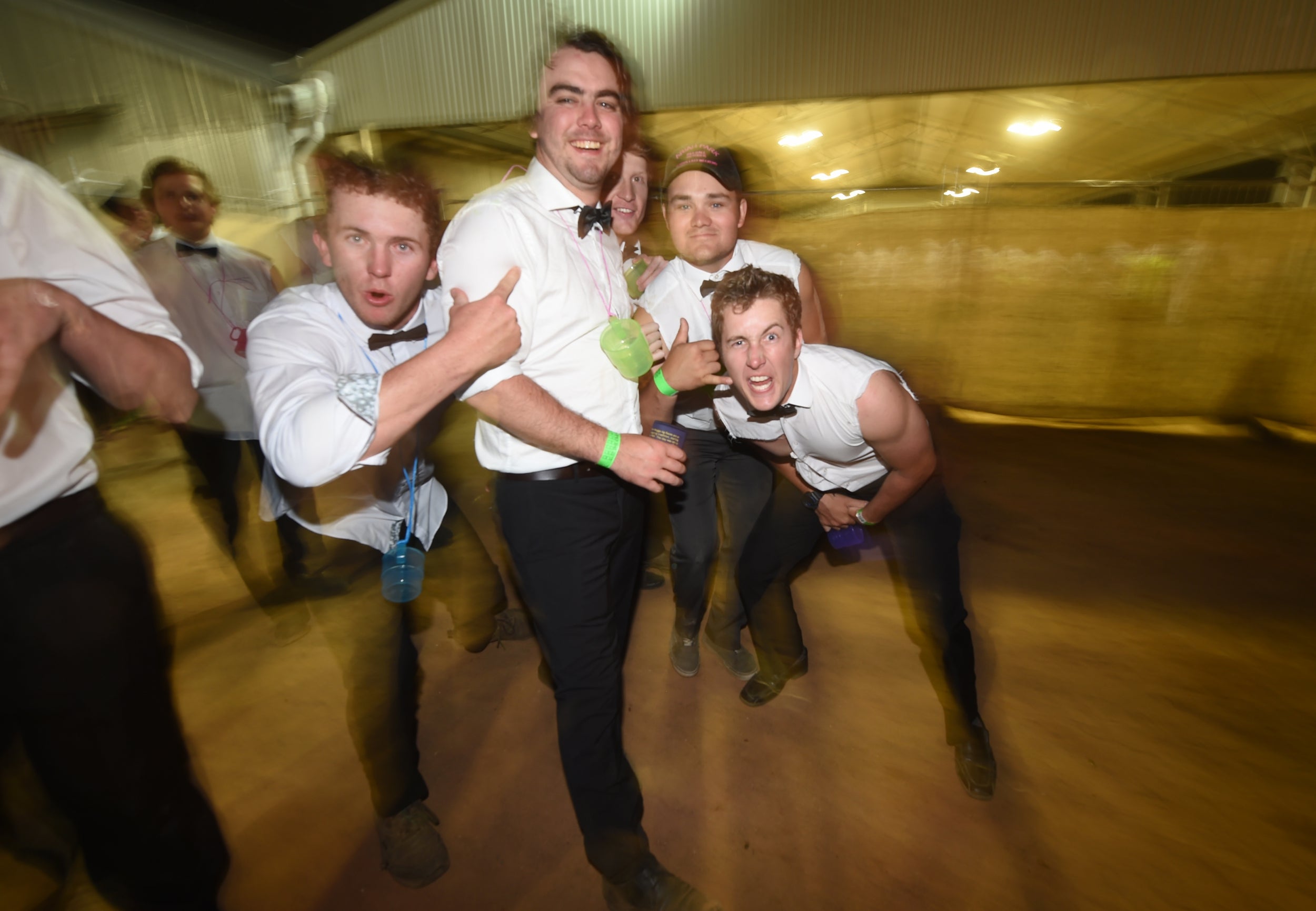
Near the centre of the stage, men bounce to the music. At one point, Williams squeezes towards the front, pulling a girlfriend by the hand. Many of the men seem awkward. Some of the women choose to be bold. “Are you taken?” they ask their intendeds.
But near the edges, there is more tenderness, as if the phases of courtship are rippling out in concentric rings.
There – stage right and near the back – a woman in a green lace-dress dances with her bearded partner, swaying slowly at half the beat of the music. She leans forward. Something he says makes her laugh.
“I love you,” she tells him, staring into his eyes, “I love you”.
© New York Times
Join our commenting forum
Join thought-provoking conversations, follow other Independent readers and see their replies
Comments